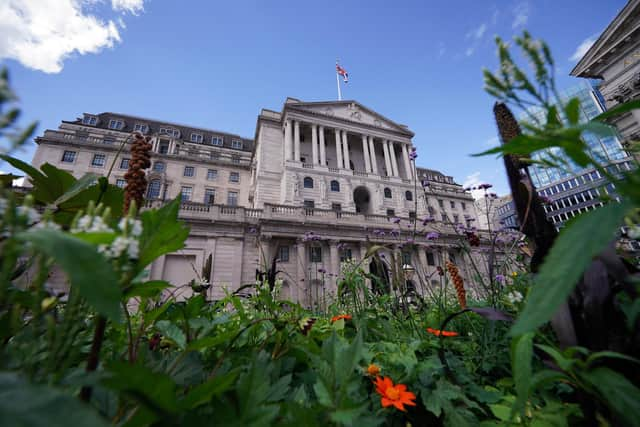What are interest rates and how will their movement affect you? - Mark Fleet
But even though it's a term most people regularly hear, many don't know what interest rates actually are, or how the extent to which they rise and fall impacts their lives, so I thought I'd shed some light on the matter.
What are interest rates? Interest rates indicate how high the cost of borrowing is and how rewarding saving is.
Advertisement
Hide AdAdvertisement
Hide AdIf you’re a borrower, the interest rate is the amount you are charged for borrowing money. This is typically shown as a percentage of the total amount of the loan. The higher the percentage, the more you have to pay back, meaning the lower the interest rate, the better.


If you're a saver, the opposite is true; your savings are generally worth more and earn more interest when rates rise as banks and building societies usually pass the rate rises on to customers.
Even a small change in interest rates can have a big impact, so it’s important to keep an eye on whether they rise, fall or stay the same.
What is the base rate? The base rate determines the interest rate the Bank of England pays to commercial banks that hold money with them. This then influences the rates those banks charge people to borrow money or pay on their savings.
Advertisement
Hide AdAdvertisement
Hide AdWhen base rates change, banks usually change their interest rates on borrowing and saving.
Who sets the base rate? The Bank of England's Monetary Policy Committee (MPC) sets the base rate as part of its Monetary Policy - action it takes to meet targets set by the Government to keep inflation low and stable.
What do the recent rises in interest rates mean for families? One of the biggest issues when interest rates rise is that it becomes more expensive to borrow money. Mortgages may become more expensive, for example, with those on tracker and standard variable rate (SVR) deals usually seeing an immediate increase in their monthly payments.
The recent base rate rise from 4.5 per cent to 5 per cent means those on a typical tracker mortgage now pay about £47 more a month, while those on SVR mortgages are paying approximately £30 more than they were before the rise.
Advertisement
Hide AdAdvertisement
Hide AdAnyone with a credit card or a loan will also have seen the amount they are being charged for them increase.
Those with savings accounts, however, may find their savings increasing in value, as they may be paid more interest as banks seek to ensure good deals for savers.
What help is available for financially vulnerable households? The cost of living crisis has presented illegal money lenders and loan sharks with an opportunity to target more people than ever and, as interest rates rise, it is likely that still more people may be tempted to turn to them for financial help.
Under no circumstances should people turn to these unscrupulous lenders.
Advertisement
Hide AdAdvertisement
Hide AdInstead, anyone experiencing financial difficulties should contact their local credit union, who may be able to provide them with access to a range of affordable loans and savings accounts.
Mark Fleet is CEO of financial services provider Leeds Credit Union.